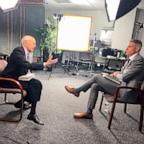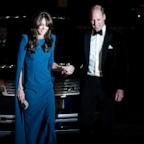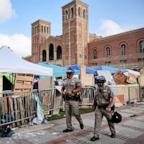'Freakonomics' Authors' Tips on Super Bowl Bets
Feb. 3, 2006 -- -- "You can't beat the house. … You can't beat the house."
Even on Super Bowl Sunday, everyone in this glittering town knows Las Vegas' oldest rule. The odds are against you.
But people come, and they place their bets: Pittsburgh Steelers by 4.
"We're here to have fun, and if we win a little bit of money, that's great. If we don't, we're having fun," said Jim Barron, a visitor in a Steelers jersey. He and his wife, Starr, were visiting from Phoenix, but they bet on the Steelers because they grew up near Pittsburgh.
"We bet on our favorite -- he never tells me how much," said Starr Barron, standing next to her husband. "It makes me too nervous."
In Las Vegas, where sports betting is legal and high rollers reign, more money will be bet on the Super Bowl than any 60 regular games combined. More money will be wagered nationwide than on any other day.
And nobody's more thrilled about that than Chuck Esposito. He's in charge of the Sports Book at Caesars Palace, and he sets the spread for all the casinos owned by Harrah's Entertainment, the parent company of Caesars.
"The big game's a tremendous day for us," said Esposito, with a broad smile. "The volume, the atmosphere, the excitement. But I still hope that we're on the right side at the end of the day."
He probably will be. Esposito is cheerful, open, and described by everyone who meets him as very, very smart. Working with staff and consultants, he sets the point spread for the Super Bowl, the rest of the NFL season, and myriad other sports. When he posts a spread -- say, favoring the Steelers over the Seahawks by 3½ points -- other bookmakers watch with care.
So do Steven Levitt and Stephen J. Dubner, the co-authors of the best-selling "Freakonomics." They report that, in football at least, you actually can beat the house.
"There aren't many people who succeed in doing it, but at least it's possible," Levitt said. When he and Dubner are not writing, he is a professor of economics at the University of Chicago. Together, they also consult for ABC News.




